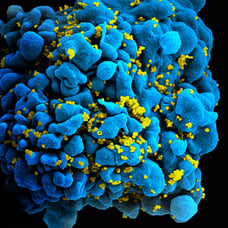 According to the World Health Organization, more than 36.7 million people around the world are infected with Human Immunodeficiency Virus (HIV). Although there is not yet a cure for HIV, some treatments are able to slow the spread of the virus. Researchers around the world study the virus with the hope of one day creating a cure to attack the virus. A team of researchers from the University of Southern California in Los Angeles are taking a different approach to fighting HIV - by creating a treatment that boosts the immune system instead of attacking the virus.
According to the World Health Organization, more than 36.7 million people around the world are infected with Human Immunodeficiency Virus (HIV). Although there is not yet a cure for HIV, some treatments are able to slow the spread of the virus. Researchers around the world study the virus with the hope of one day creating a cure to attack the virus. A team of researchers from the University of Southern California in Los Angeles are taking a different approach to fighting HIV - by creating a treatment that boosts the immune system instead of attacking the virus.
Tags: CA, University of Southern California, USC, Los Angeles, BioResearch Product Faire Event, HIV research, 2018, HIV treatment
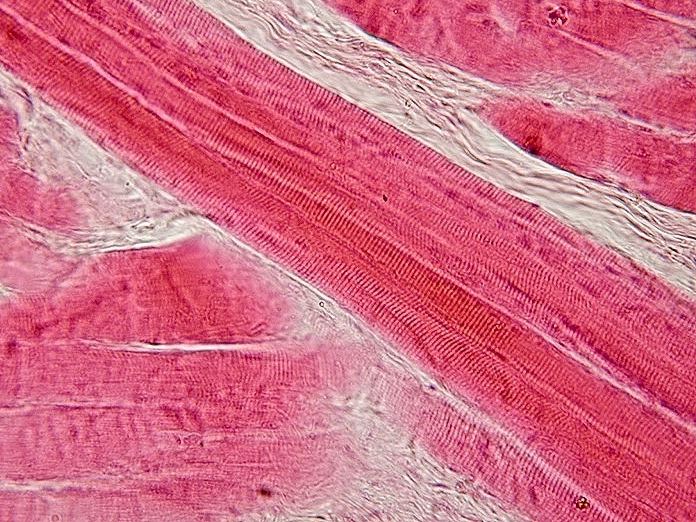
For cancer patients with tumors, there always a risk of the tumor spreading to a different organ, which makes fighting the cancer more difficult and risky. However, this spread of cancer very rarely occurs on skeletal muscles, which make up nearly 50% of body mass. Why don't these metastatic cancer cells move to and grow on these skeletal muscles? Researchers are still unclear. Now, with the help of a recent $1 million grant from the W.M. Keck Foundation, a research team at Fred Hutchinson Cancer Research Center will focus on studying this elusive topic. (Image courtesy of CC BY-SA 3.0 via Wikimedia Commons)
Read MoreTags: Fred Hutchinson Cancer Research Center, WA, cancer research, BioResearch Product Faire Event, Seattle, Hutch, 2017, skeletal muscle research
 Valley Fever affects nearly 10,000 people in the United States each year, predominately in the Southwestern states of Arizona and California. This infection, caused by the fungus Coccidioide, affects different people in different ways: some get very ill while others are only mildly affected. However people are affected, there is no vaccine to cure the infection. A team of researchers from the University of Arizona, Tucson recently received a $4.8 million grant from the National Institute of Allergy and Infectious Disease (NIAID) to develop a vaccine for Valley Fever.
Valley Fever affects nearly 10,000 people in the United States each year, predominately in the Southwestern states of Arizona and California. This infection, caused by the fungus Coccidioide, affects different people in different ways: some get very ill while others are only mildly affected. However people are affected, there is no vaccine to cure the infection. A team of researchers from the University of Arizona, Tucson recently received a $4.8 million grant from the National Institute of Allergy and Infectious Disease (NIAID) to develop a vaccine for Valley Fever.
Tags: new research funding, AZ, UAZ, BioResearch Product Faire Event, Tucson, NIH funding, University of Arizona Tucson, 2017, Valley Fever
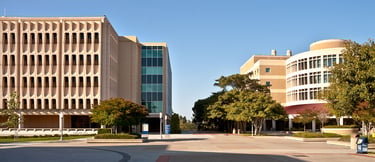 The University of California, Irvine is a growing life science research institution that is continually growing its research facilities and capabilities. A recent gift of $200 million dollars is the latest funding helping UCI establish itself as a leading life science research institution. (Image of the UCI Science Plaza by By David Eppstein via Wikimedia Commons)
The University of California, Irvine is a growing life science research institution that is continually growing its research facilities and capabilities. A recent gift of $200 million dollars is the latest funding helping UCI establish itself as a leading life science research institution. (Image of the UCI Science Plaza by By David Eppstein via Wikimedia Commons)
Tags: CA, new research building, University of California Irvine, BioResearch Product Faire Event, UCI, 2017, College of Health Sciences, Integrative Health Research
 Sight is something that a majority of the population will never have to worry about losing. However, many diseases threaten sight, like age-macular degeneration (AMD). This degenerative disease becomes more likely with older age, and causes a loss of central vision in the retina. In the United States more than 10 million people suffer from AMD, the majority of those aged 55 and older.
Sight is something that a majority of the population will never have to worry about losing. However, many diseases threaten sight, like age-macular degeneration (AMD). This degenerative disease becomes more likely with older age, and causes a loss of central vision in the retina. In the United States more than 10 million people suffer from AMD, the majority of those aged 55 and older. Tags: new research funding, AZ, UAZ, BioResearch Product Faire Event, Tucson, University of Arizona Tucson, 2017, macular degeneration
Oregon State University recently acquired a new, customized $1.6 million ambient-pressure X-ray photoelectron spectroscopy system (AP-XPS). The AP-XPS is the first instrument of its kind in the United States to incorporate an ambient-pressure scanning tunneling microscope, or AP-STM, which enables imaging of surfaces with atomic resolution. This high-tech research instrument will make the surface characterization laboratory at OSU’s College of Engineering a major resource for scientists throughout the Pacific Northwest.
Read MoreTags: Bioresearch, Oregon State University, Oregon, BioResearch Product Faire Event, Research Funding, OR, Corvallis, Research equipment, Northwest Region, ORSTU, Lab Supply, Laboratory product sales, general lab supply, 2017 research funding
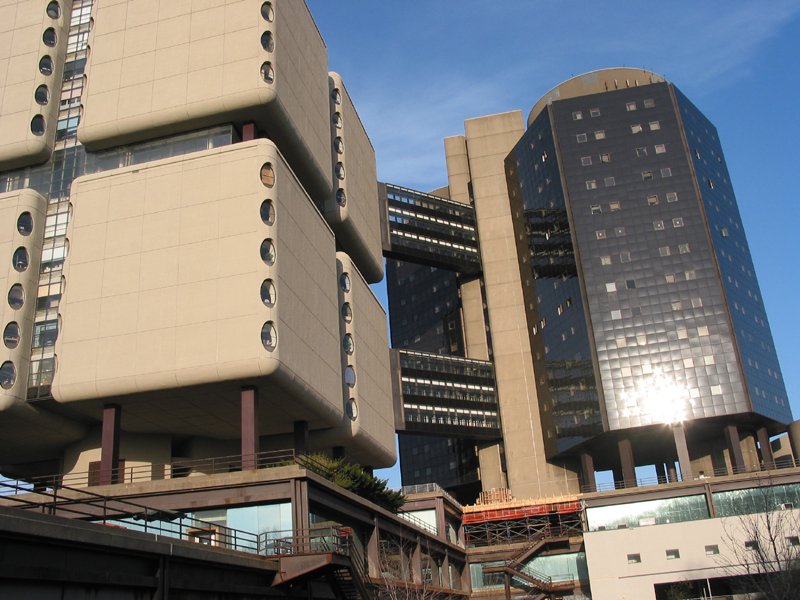 There is so much that scientists have yet to learn about the universe, and understanding the matter that makes up the universe is a large task for scientists to undertake. Researchers at Stony Brook University will soon have new opportunities to increase their research thanks to a newly established research center.
There is so much that scientists have yet to learn about the universe, and understanding the matter that makes up the universe is a large task for scientists to undertake. Researchers at Stony Brook University will soon have new opportunities to increase their research thanks to a newly established research center.
Tags: Stony Brook University, Physics, BioResearch Product Faire Event, NY, Stony Brook, SunySB, New research center, 2017, nuclear research
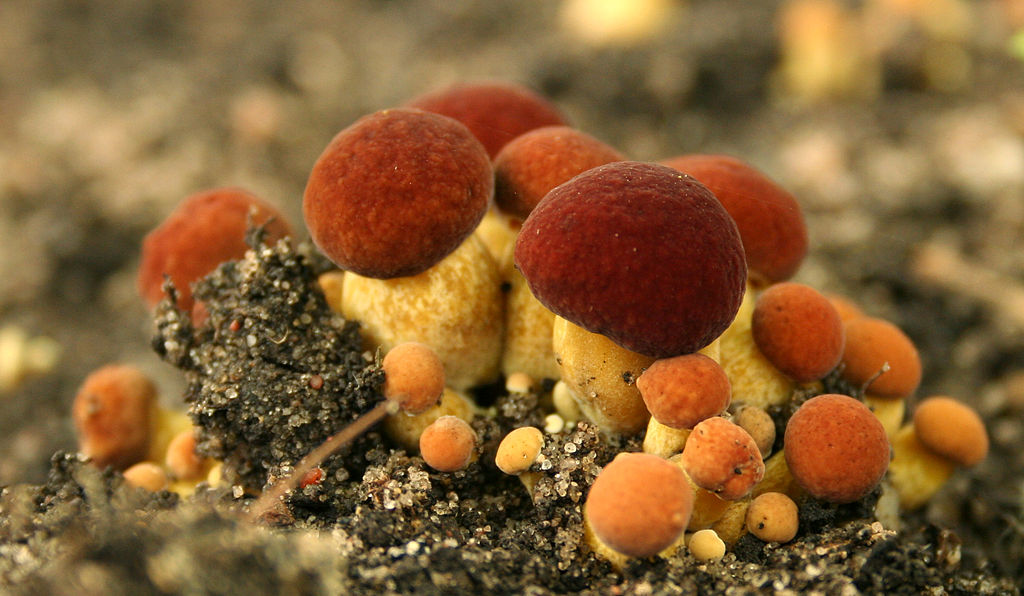 Fungi can be found throughout nature, from moldy food forgotten in the fridge to mushrooms growing in the forest. Scientists know that these diverse plethora of fungi contain useful molecules that can be used in creating new drugs, however extracting complex molecules from fungi is not an easy task and in the past has been a slow process.
Fungi can be found throughout nature, from moldy food forgotten in the fridge to mushrooms growing in the forest. Scientists know that these diverse plethora of fungi contain useful molecules that can be used in creating new drugs, however extracting complex molecules from fungi is not an easy task and in the past has been a slow process.
Tags: Fungi, Wisconsin, University of Wisconsin Madison, UW Madison, BioResearch Product Faire Event
The University of Chicago is receiving $100 million from Craig Duchossois, his wife, and Janet Duchossois and The Duchossois Family Foundation. The funding will be used to establish a new life science institute that will focus on the development of a “new science of wellness.” As the name indicates, The Duchossois Family Institute: Harnessing the Microbiome and Immunity for Human Health, will work to accelerate research and interventions based on how the human immune system, microbiome and genetics interact to maintain health.
Read MoreTags: Midwest, microbiome, immunotherapy, University of Chicago, BioResearch Product Faire Event, Chicago, Front Line event, laboratory equipment, lab suppliers, UChicago, BioResearch Product Faire, microbiome immunotherapy
So far in 2017 the National Institute on Health has awarded the University of Pittsburgh over $113M in research project grants. This funding supports 296 separate projects. The top six grants were awarded to the university’s School of Medicine.
Read MoreTags: University of Pittsburgh, Bioresearch funding, UPITT, NIH funded Research Projects, BioResearch Product Faire Event, Lab Product Sales, lab products, BioResearch Product Faire, Liver disease, NIH awards 2017, 2017 research funding, Xenograft study

